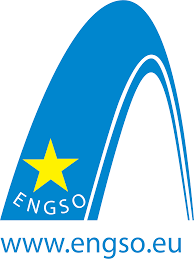EQUIP - Equip for Equality in Practice
The main aim of the EQUIP project is to improve equality in sport in Europe through the practical and sustainable implementation of the existing good practices and policies. In 6 European countries, more than 20 sport clubs and federations are supported by their national or regional sport organisations to take concrete action against inequalities and discriminations at their level, therefore directly contributing to the improvement of sport governance and indirectly influencing others to take action on equality. EQUIP is an ambitious project led by ENGSO over 3 years and co-financed by the Erasmus+ program of the European Commission.
What is the purpose of the project?
EQUIP aims at developing competencies and capacities within the European sport sector to tackle inequalities. The purpose of the project is also to strengthen a network that drives equality within sport in the long-term. In EQUIP, more than 20 actors on the field -clubs and federations from 6 European countries- benefit from a supportive system of experts and are empowered with tools to take concrete actions against discriminations in their own environment. The objective is to translate the global/national policies and universal recommendations into tailor-made action plans addressing different (in)quality topics. This entire process will be monitored and evaluated (results of local equality projects, collection of good practices, etc.) in order to identify some of the key transferable lessons which can be used to educate and inspire other stakeholders to similarly improve governance and eliminate discriminating practices.
What were the enablers that proved successful in your project?
The Special Eurobarometer on Sport and Physical Activity (2018) commissioned by the European Commission has demonstrated concerning figures and trends with regards to the participation and experience of particular groups of people in sport, in Europe. Men play sport more than women; engagement in sport is less prevalent among people with lower levels of education and among those with financial difficulties; disability or illness is an important factor given for not practising sport regularly; 90% of the LGBTI-people reported homophobia and particularly transphobia in sport to be a problem (Menzel et al., 2019); and discrimination based on race and/or ethnic cultural background is still a stubborn problem.
Furthermore, although there is an abundance of existing resources, tools, best practices and policies regarding equality in sport generated through various European projects, these hardly seem to be practically and sustainably implemented at the national, regional and local sports governance levels by sport organisers such as sport agencies, and especially sport federations and sport clubs. The main challenge here is that the majority of sport organisers only have a very limited amount of organisation capacity to actively explore, translate and implement these within their daily practices.
What impact did your project have?
The project has not yet been completed (end in 2023), but the following impacts have already been observed. The sport organisations involved in EQUIP have a better understanding of the equality policies and practices in sport, they have the possibility to reach out to an active network of experts on equality and are better equipped to support their local clubs and federations in addressing discrimination.
The project beneficiaries -about 20 clubs and federations in 6 European countries- directly benefit from EQUIP through the reduction/elimination of discriminatory practices, an increased diversity among participants, staff, volunteers and decision makers, and ultimately an increased membership base.
On the long-term, the communities that are home to the sport clubs and/or federations will have an improved understanding of inequalities that exist in sport and will have an increased appreciation for diversity.
What were the outcomes for women?
In EQUIP, equality is approached from an intersectional lens in which every European citizen can freely and safely participate in sport regardless of gender identity, sexual orientation, socioeconomic status, physical ability, race and/or ethnicity, religion, age or any other discriminatory criteria. The outcomes presented here are therefore not strictly limited to women, although they largely and mostly benefit women in sport.
EQUIP has established a panel of equality experts and created an index of top policies and practices observed in Europe on the different (in)equality topics. Sport organisations from 6 European countries have participated in “Equality Within Sport” workshops that can be reproducible and in which equal opportunities and diversity are addressed in terms of everyday practices, structures and processes of sport organisations. They are currently organising “Equality Within Sport” workshops at their level (national/regional) to target board members, directors, staff, practitioners, volunteers, athletes of sport clubs and federations. In these 6 countries, 20 clubs and federations are supported to create and implement tailor-made equality action plans to tackle inequalities in their environment. The final results of these implementation will be presented through a series of case studies at the end of the project in 2023 during a final conference.
Co-partnering with
- Center for Ethics in Sport (ICES)
- European Gay and Lesbian Sport Federation (EGLSF)
- Portuguese Sports Confederation (PSC), RF-SISU Örebro (Riksidrottsförbundet Örebro)
- Organizzazione per l'Educazione allo Sport (OPES)
- Belgium Olympic and Interfederal Committee (BOIC)
- Dutch Olympic Committee*Dutch Sports Federation (NL NOC*NSF)
- Hellenic Paralympic Committee (HPC)
- European Lotteries



















